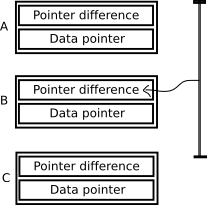For the last several versions the Fedora Core (and previously RedHat) distribution has had the ability to verify that the downloaded CD images were successfully transfered to the newly burned discs. For people who download the images and create CDs themselves this is a fabulous feature; I am sure it has saved people from broken installations. However, as I discovered it can also lead a bit of pain.
Last week I downloaded all of the FC4 disc images and preceded to burn them to CD. After rebooting to install using the new media I discovered that the CD verification was failing for three of the five discs. So, I burned them again. Same result. Having used the CD verification for many years I had no reason to doubt it. Eventually I gave up and asked Bob to burn me a copy. Strangely, these CDs failed the verification phase as well.
Realizing that something strange was going on I started googling for similar experiences. It turns out that the CD verification can fail on certain hardware. I had simply never ran into this problem before because this was my first Fedora install on my new computer.
The solution is to boot the installation kernel with an option which tells it not to use DMA for IDE devices. At the GRUB prompt type ‘linux ide=nodma”. After doing this all discs passed their tests. There is one catch though, the Fedora installer is quite smart. If you use a kernel option to do the installation the installer decides this option must be required for successful operation. After installation I had to remove “ide=nodma” from /etc/grub.conf.
If the above wasn’t enough of an adventure I also managed to cause myself some extra pain. When I asked for a copy of FC4 to be created for me I never specified which version. My new computer has a x86_64 processor. The FC4 installation discs I borrowed were for the i386 version. After a day or so of use I realized the mistake and reinstalled with the discs that first caused the problems.

